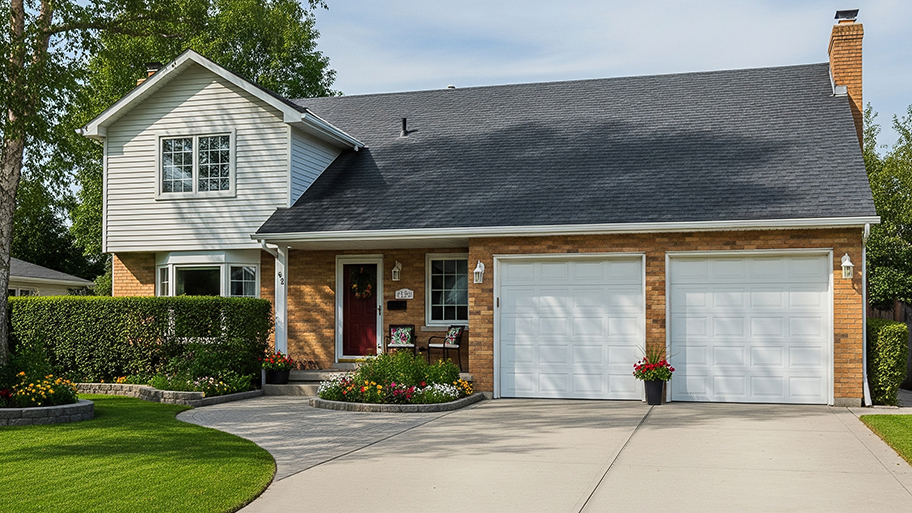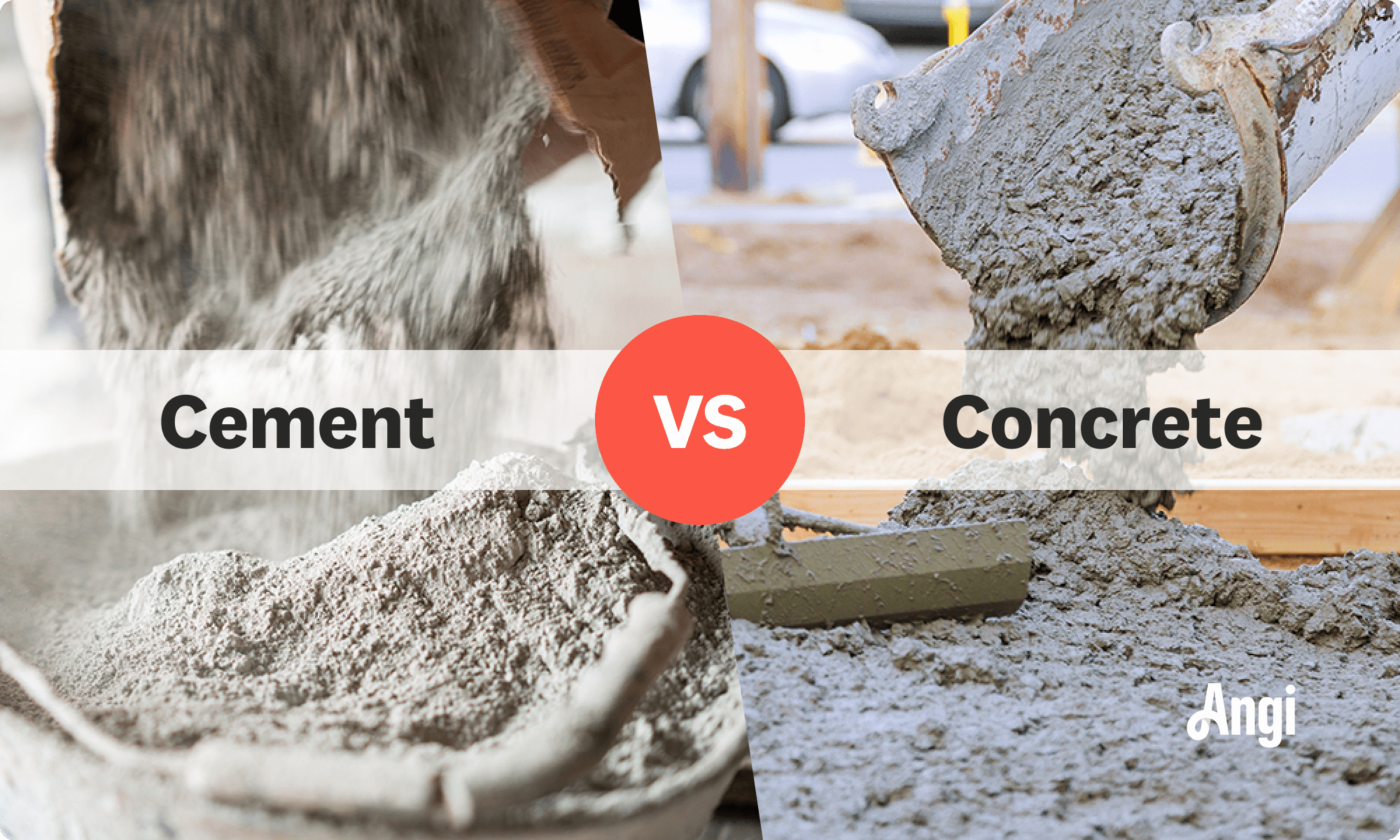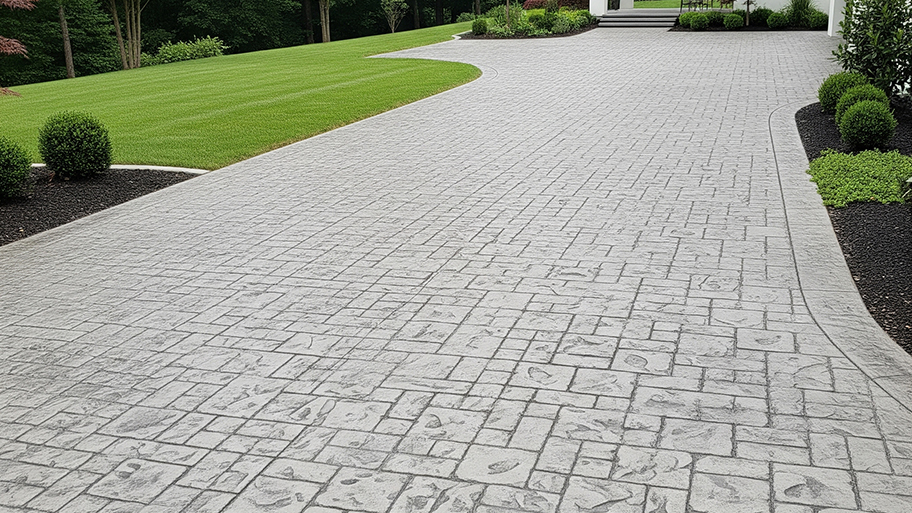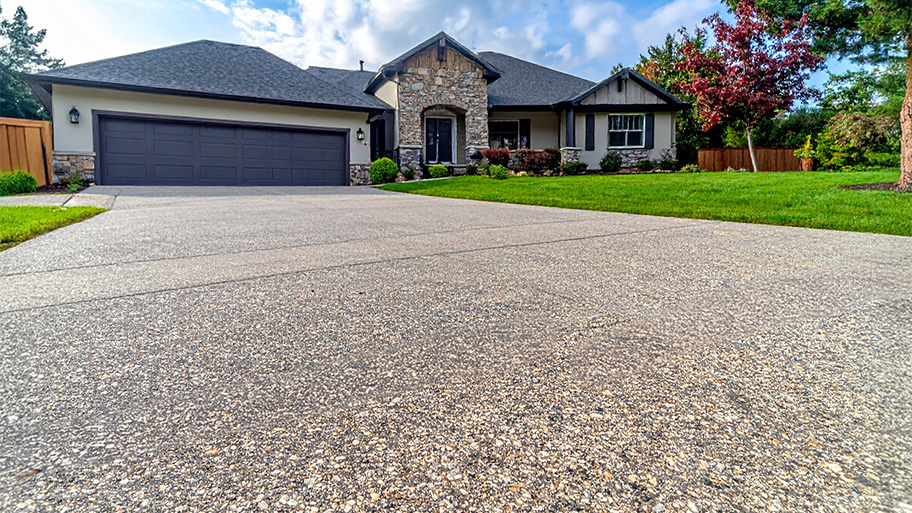
Concrete driveways stand up to a lot of pressure over the years. How much do concrete driveway repairs cost when it's time to give it a little TLC?
There’s a concrete difference between these two materials


Cement is a component of concrete and is rarely used by itself.
Cement helps make concrete durable and strong.
Concrete is used for various construction projects and can be customized for different uses.
When you’re building a patio, driveway, or walkway, you might be wondering if you need cement or concrete to complete the job. While these two terms are often used interchangeably, the two materials differ. Cement is one of the materials used to make concrete, and concrete is the material—made up of cement, water, and other components—used to construct foundations, outdoor features, and more. Learn the differences between cement and concrete so you can tackle your project with confidence.
The key difference between cement and concrete is that cement is a component of concrete and is rarely used on its own. Concrete is an aggregate of different materials, one of which is concrete. So the big trucks with rotating drums that we often call “cement mixers” are technically concrete mixers, combining water, cement, and other aggregates to make concrete that’s ready to pour.

Cement is a binding paste that is used to make concrete and other construction materials, such as mortar. When you combine cement with other substances, it forms a mixture that sets, hardens, and adheres materials together. Cement is almost never used on its own, except occasionally as grout or to repair concrete cracks. But it's best to choose concrete over cement, as cement is far less sturdy than concrete.
Cement itself is made of limestone, calcium, aluminum, silica sand, iron, and other materials. Cement may also include chalk, shells, or marl with clay, slate, shale, slag, or iron ore.
Concrete is a construction material made of cement, water, sand, gravel, and sometimes other materials such as crushed stone. It hardens and cures over time. You can use concrete to form a variety of structures and surfaces, including home foundations, buildings, roads, sidewalks, driveways, patios, and more. Concrete is the most widely used construction material. There are many types of concrete that can offer various styles and colors.
| Cement | Concrete |
|---|---|
| Ingredient of concrete | Mixture of cement, aggregates, and water |
| Not used on its own | Used to form driveways, sidewalks, patios, and more |
| Not structurally sound or durable on its own | Highly durable and long-lasting |
| Unable to form and hold most shapes | Able to form and hold most shapes |
| Gray, dirt-like appearance, or paste when wet | Standard light gray mixture, but can be colored and stamped |
| Affordable and widely available | Affordable and widely available |
| Best to hire a pro for installation; some DIY projects possible | Best to hire a pro for installation; some DIY projects possible |
| Doesn’t often require repair | Needs some repair and reinforcement over time |
| Low maintenance | Low maintenance |
| Not used enough by itself to measure longevity | Lasts 100+ years |
| Not eco-friendly | Somewhat sustainable |
Cement is an ingredient of concrete, while concrete is the material used to pour driveways, sidewalks, house foundations, and more. Concrete is more durable, long-lasting, and useful than cement.
“This is not to undermine the importance of cement, which gives the concrete mix its hard and durable characteristics when cured,” says Matt DiBara, Expert Review Board member and owner of DiBara Masonry.
Here are the main differences between concrete and cement.
Cement looks like a gray dirt or sand-like substance. When mixed with water, it becomes a paste. Concrete is a thicker gray slurry mixture of cement, water, and aggregates, including sand and gravel. Sometimes, it also includes other materials such as crushed stone or shells. Concrete dries and cures, which is what you see in a finished driveway or sidewalk.
You can form concrete into almost any shape. It's versatile across many different applications, such as a house foundation, pool deck, statue, or patio. You can color and stamp concrete with decorative features or leave it the standard gray. Cement, on the other hand, is rarely used on its own but occasionally to fill in cracks or plaster a surface. Most of the time, it simply serves as an ingredient of concrete or mortar.
Concrete lasts a long time and is incredibly durable, holding up to heavy traffic and tough weather conditions. It helps form home and building foundations and makes up sidewalks and driveways. Cement is weaker and prone to cracking. Cement is rarely durable enough for any project on its own but can sometimes patch concrete.
Both cement and concrete are affordable materials available in most areas at home improvement and hardware stores. The cost of a concrete slab ranges from $4 to $8 per square foot, depending on the thickness. Cement costs $0.20 to $0.30 per pound.
When pouring concrete, it’s best to hire a local concrete pro to ensure structural integrity and evenness. Working with concrete requires specialty tools and equipment. With careful planning, technique, and tools, you can do a DIY concrete project, such as a small deck or repairing the sidewalk, but be sure you’re up for the challenge.
Applying cement to fill in a crack in the concrete is straightforward (although concrete or a driveway patch is always the better solution). Plastering an entire wall or floor with cement takes a specific technique and the right tools, so always leave that to a plaster repair pro.
Cement is rarely used on its own, so it doesn’t often need repairing. Concrete does need repair and some ongoing reinforcement, depending on the structure. Repairing the concrete in a foundation or building can be labor-intensive and is best done by a local concrete company, but filling a crack in your driveway is often a simple DIY project.
Both cement and concrete are low-maintenance materials. When used in their proper applications, you won’t need to do much with them unless they crack. If you have a concrete driveway or sidewalk, concrete maintenance consists of cleaning them annually with a pressure washer and resealing the concrete every two to three years.
Concrete lasts 100 or more years on average—an exceptional life span for a building material. Cement isn’t used enough in standalone applications to consider longevity.
Cement production releases a significant amount of carbon dioxide. While concrete uses cement, it also uses crushed materials from demolished structures, making it somewhat eco-friendly. Concrete is energy-efficient and sustainable because it absorbs heat and holds up for long periods of time.
You can find cement and concrete in almost any home improvement or hardware store. Both materials are both widely available and affordable.
Concrete is the most widely used building material in the world—and for good reason. Concrete has advantages: It holds up to heavy loads, lasts for a century or longer, and can form into various shapes, colors, and styles. From standard concrete to colorful stamped concrete, you can have a custom design at an affordable price. No other building material comes close to what concrete can provide from a durability, longevity, and price standpoint.
Jenna Jonaitis contributed to this piece.
From average costs to expert advice, get all the answers you need to get your job done.

Concrete driveways stand up to a lot of pressure over the years. How much do concrete driveway repairs cost when it's time to give it a little TLC?
Need to breathe new life into your exterior stoop? Use this guide on concrete step repair cost to see the price of a professional repair.

Whether you’re planning on putting in a concrete driveway, patio, or staircase, use this concrete delivery cost guide to get an accurate estimate.

Learn about how thick a concrete driveway should be and what factors affect the thickness before pouring concrete to ensure safety and durability.

Finished concrete is an affordable way to maximize your home’s curb appeal. Learn about the different types of concrete finish and which is right for you.

Exposed aggregate concrete allows you to customize the look and finish of concrete fixtures. Learn more about this versatile finish and its pros and cons.